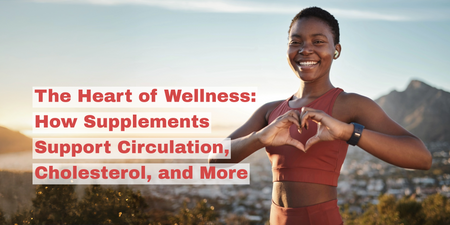What is stress and how does it affect your body?
Stress is a normal human response that happens to everyone. In fact, the human body is designed to undergo stress and react to it.
It’s a feeling of emotional or physical tension.
When you experience changes or challenges (stressors), your body produces physical and mental responses. A stressor may be a one-time or short-term occurrence, or it can happen repeatedly over a long time.
In short spurts, some stress is positive. It causes the body to release adrenaline, which can help accomplish assignments and projects and can even enhance performance and problem-solving abilities.
But when stress lasts for a long time, it can harm your health.
When a person has long-term (chronic) stress, constant activation of the stress response can take its toll on the body and be debilitating and overwhelming.
Symptoms of stress
Physical symptoms of stress include:
- -Aches and pains.
- -Chest pain or a heart that is racing.
- -Fatigue or trouble sleeping.
- -Headaches, dizziness or shaking.
- -High blood pressure.
- -Muscle tension or jaw clenching.
- -Stomach or digestive problems.
- -Weakened immune system.
Stress can cause emotional and mental symptoms like:
- -Anxiety
- -Irritability.
- -Depression.
- -Panic attacks.
Unfortunately, we can't always remove the source of our stress. However, there are certain coping mechanisms and techniques that we can use to help reduce the uncomfortable feelings and physiological effects of stress.
Here are 5 possible ways to help reduce your stress levels.
Create boundaries and learn to say no
You can't control all the stressors that come your way, but you can control some. Having too much on your plate can increase your stress load and limit the amount of time you can spend caring for yourself.
Taking control over your personal life may help reduce stress and protect your mental health. One way to do this may be to say “no” more often. This is especially true if you find yourself taking on more than you can handle, and feeling overwhelmed.
Being selective and saying “no” to things that will unnecessarily add to your load can help reduce your stress levels. Creating boundaries, especially with people who add to your stress levels, is a healthy way to protect your own well-being.
Spend Time with Friends and family
Having support from family and friends can help you cope with difficult and stressful times. It’s important to have social support for your mental health overall. If you are alone and do not have any friends and family nearby a social support group, sports or social club or community volunteering could help.
Getting enough, good sleep.
Being stressed can cause trouble sleeping, not getting enough sleep can leave you tired and unfocused causing a cycle of stress and sleeplessness. Sleep is the time when your brain and body recharge. Make sure to get the doctor-recommended seven to eight hours of sleep a night.
Better sleep habits can help. This includes both your day-to-day routine and the way you set up your bedroom.
Some better sleep habits could be:
- -Regular exercise.
- -Get out in the sunlight as often as possible.
- -Less alcohol and/or caffeine close to bedtime.
- -Set a sleep schedule.
- -Don’t look at screens 30-60 minutes before bed.
- -Listen to soothing music.
- -Keeping a clean, uncluttered bedroom.
- -Regularly change bedding.
An extract from Matthew Walker’s fantastic book Why We Sleep “I was once fond of saying, ‘Sleep is the third pillar of good health, alongside diet and exercise.’ I have changed my tune. Sleep is more than a pillar; it is the foundation on which the other two health bastions sit. Take away the bedrock of sleep, or weaken it just a little, and careful eating or physical exercise become less than effective, as we shall see.”
Mindfulness practice – Checking in with yourself
Checking in with yourself is so important to stop the stress response. Checking in with yourself regularly, at least every few hours, may enable you to bring yourself back to a calm, relaxed, happy state. Try it, it works wonders. It is far healthier than grabbing another cup of coffee or an unhealthy snack to get your blood sugar up.
This also becomes a great time to go and take a quiet walk around the house, office, garden, wherever works best for you and if that is out of the question, just taking a few slow breaths will slow down your heart rate and quiet your mind.
Asking yourself these questions work wonders to bring you back to yourself:
- -What thoughts are running through your head? (what are you saying to yourself, what images are coming to mind?)
- -What emotions are you feeling? (neutral, excited, upset etc)
- -What body sensations are you experiencing? (physical sensations, tightness, holding, heaviness)
- -How connected do you feel to yourself?
- -How connected do you feel to the people around you?
Consider supplements
Along with stress-relieving practices like we have listed above, supplements such as botanical, vitamins or minerals, may help bring your body back to a normal state and relieve stress before it builds up into a problem.
Here are 6 supplements that could give your body and your mind that bit of extra resilience to mitigate stress.
Ashwagandha
What is it? Ashwagandha may be beneficial for lowering stress levels, elevating mood, and lowering cortisol levels.
Ashwagandha (Withania somnifera) is an adaptogenic herb native to India, where it has been used in Indian Ayurveda, one of the world’s oldest medicinal systems.
GABA
What is it? Gamma-Aminobutyric Acid (GABA) is a chemical made in the brain and often taken as a supplement to relieve anxiety, improve mood, reduce PMS symptoms, and treat symptoms of attention deficit hyperactivity disorder (ADHD).
Valerian Root
What is it? Valerian is a herb commonly used to treat insomnia, anxiety, and stress. Although it’s considered safe for most adults, the effects of long-term use are unknown. Short-term side effects include headaches and sluggishness in the morning, especially if taken at higher doses.
L-Theanine
What is it? An amino acid found in green tea, L-theanine is often used for treating anxiety and high blood pressure. There’s limited evidence that L-theanine may help people who aren’t stressed feel more peaceful. However, those with elevated stress levels didn’t experience the same effect.
B-complex Vitamins
What is it? Vitamin B-complex refers to all of the known essential water-soluble vitamins except for vitamin C: thiamine (B1), riboflavin (B2), niacin (B3), pantothenic acid (B5), pyridoxine (B6), biotin, folic acid, and the cobalamins (B12). B vitamins are important for cell metabolism. Most people who eat a balanced diet should have adequate B vitamins, but a vegan diet or an immune disorder such as lupus can lead to B12 deficiencies
Tranquigen - {Sleep Aid}
Valerian | Valerian is a herb commonly used to treat insomnia, anxiety, and stress. Although it’s considered safe for most adult
Hops | Hops are the flower of the hop plant (Humulus lupulus) used to make beer, Alternative practitioners believe that these compounds have anti-inflammatory, anti-anxiety, analgesic (pain-relieving),
Passionflower | passion flower (passiflora incarnata) is a herbal supplement used historically in treating anxiety, insomnia, seizures, and hysteria. A perennial climbing vine native to southeastern North America, passionflower is now grown throughout Europe.
Skullcap | Skullcap is a flowering perennial plant native to North America (Scutellaria lateriflora) used for centuries by Native Americans to treat menstrual disorders, nervousness, digestive and kidney problems.
One Last thing...
Although there are many ways to reduce stress on your own, it’s important to get help when you need it. Seeking professional help is OK.
If you’re experiencing overwhelming stress or symptoms of anxiety and depression, please consider making an appointment with a therapist or visiting your trusted healthcare professional to discuss ways to improve your mental health and cope with your stress.
Always talk with your doctor before trying a new supplement, especially if you’re taking other medications, pregnant, or planning to become pregnant.






